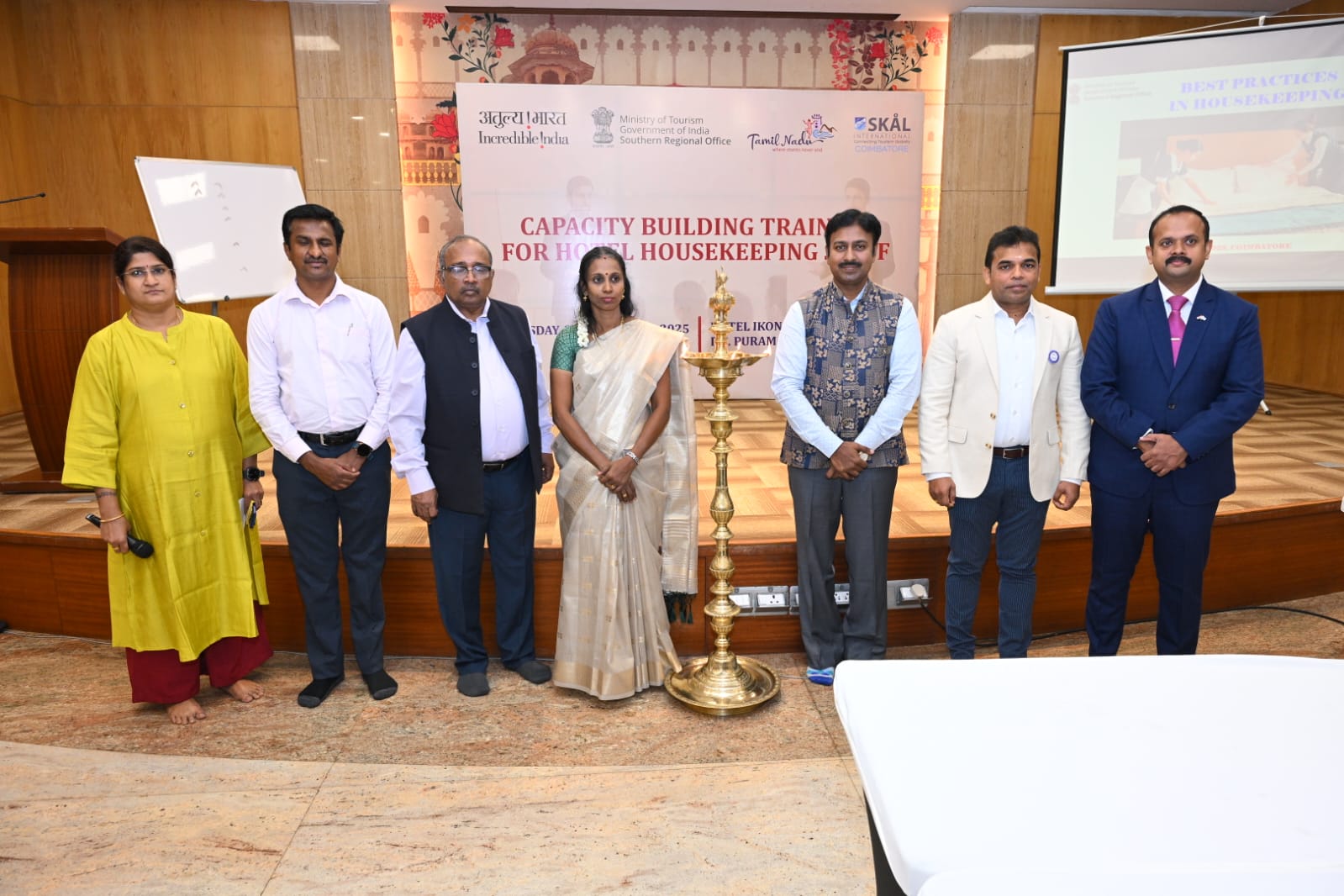CB Ramkumar urges hoteliers to obtain GSTC certification for operational efficiencies & commercial benefits.
Surbhi Sharma
With an aim to encourage more hotels, especially in India, to adopt and implement sustainable practices, Global Sustainable Tourism Council (GSTC) recently launched its Certified Hotels Directory, a global listing of hotels that have been certified by GSTC-accredited bodies. The organisation believes that Indian hoteliers will see the commercial advantages of certification, as certified hotels gain algorithmic preference on leading online travel agencies (OTAs), thereby increasing their visibility as well as bookings.
However, the number of GSTC-certified hotels remains very low in India, regardless of its benefits. Revealing the shocking figures, CB Ramkumar, Vice Chair, GSTC, said, “Despite India’s growing hospitality industry, only six Indian hotels are currently GSTC certified, compared to over 2,000 globally, most of them are from Turkey and Singapore.”
The disparity, he explained, lies in the lack of strong policy support in India. Countries like Turkey and Singapore have government mandates encouraging certification, whereas tourism is a state subject in India. While the central Ministry of Tourism (MOT) can issue guidelines, implementation depends on individual states.
State initiatives
India’s adoption of sustainable tourism frameworks is gradually evolving. On a positive development, some states have intensified their efforts by implementing the GSTC framework. Notable progress is evident in states like Gujarat and Uttar Pradesh, which have incorporated certification subsidies into their tourism policies, covering up to 50 per cent of certification costs. States like Meghalaya and Madhya Pradesh are also showing keen interest. Besides, GSTC is also actively conducting training and awareness programmes with local tourism boards and officials.
Ramkumar stressed that hotels need to start their sustainability journey voluntarily before future mandates from India or feeder markets like Europe make certification a requirement. He also urged hoteliers to look at sustainability as a risk mitigation strategy and a business imperative, not a CSR exercise.
Tackling challenges
One major barrier is misconception—many hotels equate sustainability with environmentalism alone or assume it requires heavy capital expenditure. On the contrary, GSTC defines sustainability across four pillars—sustainability management, socio-economic sustainability, cultural sustainability and environmental sustainability.
Another barrier is perception—some hoteliers see sustainability as a ‘nice-to-have’ rather than something core to business. Ramkumar argued this mindset is flawed, citing sustainable practices are critical in reducing operational costs, improving staff retention and strengthening brand reputation.
Further, GSTC does not differentiate between business hotels, homestays or FIT-oriented properties. “All hotels should be sustainable, irrespective of size, location or segment,” he asserted.
Role of OTAs
OTAs and travel platforms are becoming powerful allies in promoting sustainable travel. Their role in amplifying visibility and bookings for GSTC-certified hotels in India is crucial, Ramkumar highlighted. He added that OTAs such as Booking.com, Agoda, Traveloka and MakeMyTrip have already adopted sustainability as a core value. Many of these platforms now encourage their hotel partners to align with GSTC-accredited sustainability standards. Some platforms like Agoda, have even sponsored training programmes for hotels across Asia to help them become more sustainable.
Fighting greenwashing
In a marketplace flooded with unverified green claims, GSTC certification offers third-party validation, setting verified properties apart from competitors. Ramkumar noted that certification is more than a label—it is a stamp of credibility backed by independent audits.
As awareness of greenwashing grows, savvy travellers are increasingly demanding authentic, sustainable experiences and started questioning vague sustainability claims. Certification helps hotels earn trust, increase bookings and avoid reputational risks.
Carbon-intensive sector
Ramkumar believes that a major reason for delayed action is the underrated environmental impact of tourism. Unlike other industries like coal and steel, tourism’s carbon emissions have largely ‘flown under the radar.’ However, with each hotel potentially emitting hundreds of tons of carbon annually, governments need to acknowledge tourism as a major carbon contributor considering India’s global climate commitments.
Call to action
India’s hospitality sector must act now and embrace sustainability voluntarily to stay ahead of global standards, consumer expectations and upcoming regulations. As more states and operators come onboard, GSTC hopes to see a significant rise in certified Indian hotels, driving a more responsible and future-ready tourism ecosystem. To catch up with markets like Singapore, Turkey and even Nepal, there needs to be a shift in both perception and policy. OTAs must continue promoting certified hotels, governments must offer clearer incentives.
“Only around Indian hotels are currently GSTC certified, compared to over 2,000 globally.”
“Sustainability is a risk mitigation strategy and a business imperative, not a CSR exercise.”










